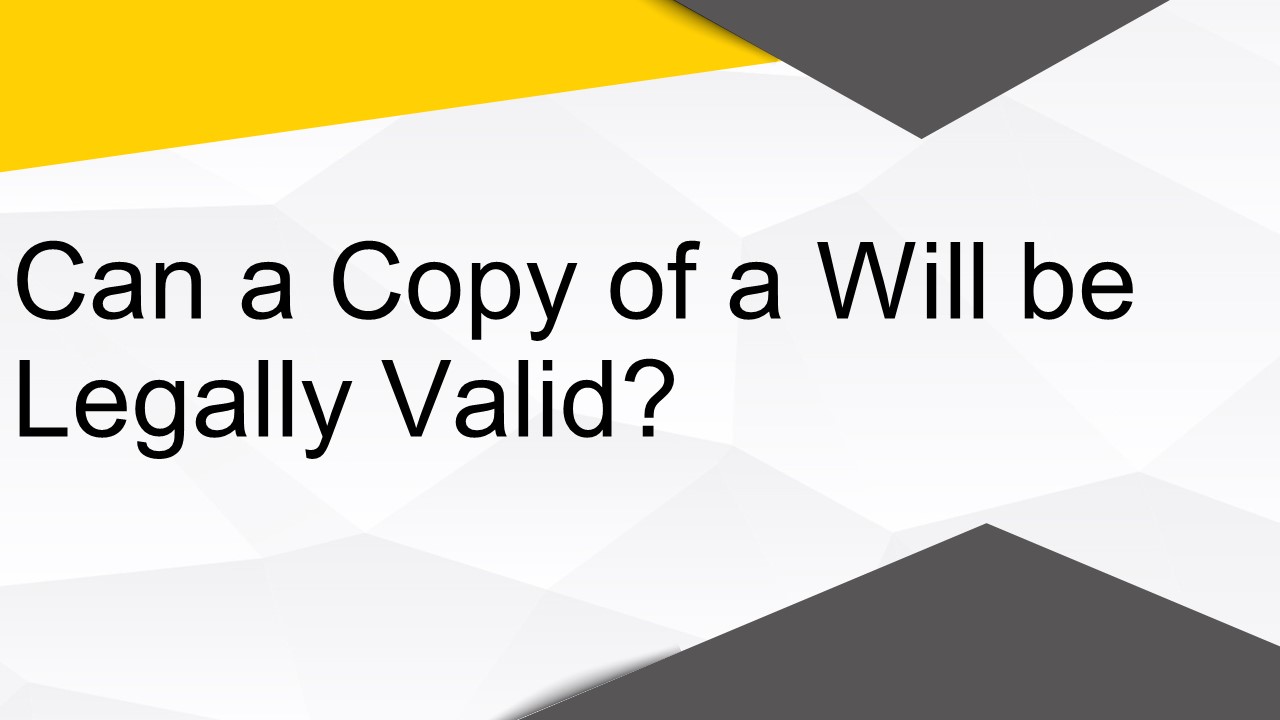Can a Copy of a Will be Legally Valid? - PowerPoint PPT Presentation
Title:
Can a Copy of a Will be Legally Valid?
Description:
One of the most important steps in guaranteeing the fair transfer of one's possessions after death is to write a will. But what happens if there appears to be a replica of the will rather than the original? Is it possible to prove and recognise a copy legally? We'll explore the legal nuances pertaining to a replicated will's legality in this blog post. – PowerPoint PPT presentation
Number of Views:0
Title: Can a Copy of a Will be Legally Valid?
1
Can a Copy of a Will be Legally Valid?
2
Introduction
Creating a will is a crucial step in ensuring the
orderly distribution of one's assets after death.
However, what happens if a copy of the will
surfaces instead of the original? Can a copy be
legally proven and recognized? In this blog post,
we'll delve into the legal intricacies
surrounding the validity of a copied will.
3
Understanding the Basics
Original Will vs. Copy
The legal system typically recognizes the
original will as the primary document. Copies may
raise questions about authenticity and the
testator's true intentions. Keep the original
will in a safe place, such as with a lawyer or in
a secure location at home, to avoid complications.
4
Understanding the Basics
Probate Process
- Probate is the legal process through which a will
is validated and assets are distributed. A copy
of a will may undergo a more rigorous scrutiny
during probate. - The probate court seeks to ensure the
authenticity of the document and the mental
capacity of the deceased when creating the will.
5
Understanding the Basics
Burden of Proof
- Proving the validity of a copy can be
challenging. The burden of proof often falls on
the party presenting the copy. - Courts may require additional evidence, such as
witness testimony or expert analysis, to
establish the authenticity of the copied will.
6
Legal Requirements for a Valid Copied Will
Clear Intent
The language in the copied will must clearly
express the testator's intentions. Ambiguities or
discrepancies may cast doubt on its validity.
Witness Signatures
Witnesses play a crucial role in validating a
will. Ensure that the copied will includes the
necessary witness signatures, as their testimony
may be vital in establishing authenticity.
7
Legal Requirements for a Valid Copied Will
- Notarization
Some jurisdictions require wills to be notarized.
A copied will with proper notarization may have a
higher chance of being accepted in court.
- Circumstantial Evidence
Compile circumstantial evidence that supports the
authenticity of the copied will. This could
include the testator's mental state at the time
of writing, the consistency of the document with
their values, and any external factors
corroborating its legitimacy.
8
Thank You
FOR YOUR ATTENTION





















![[PDF READ ONLINE] Quick & Legal Will Book PowerPoint PPT Presentation](https://s3.amazonaws.com/images.powershow.com/9915215.th0.jpg?_=202308020612)









